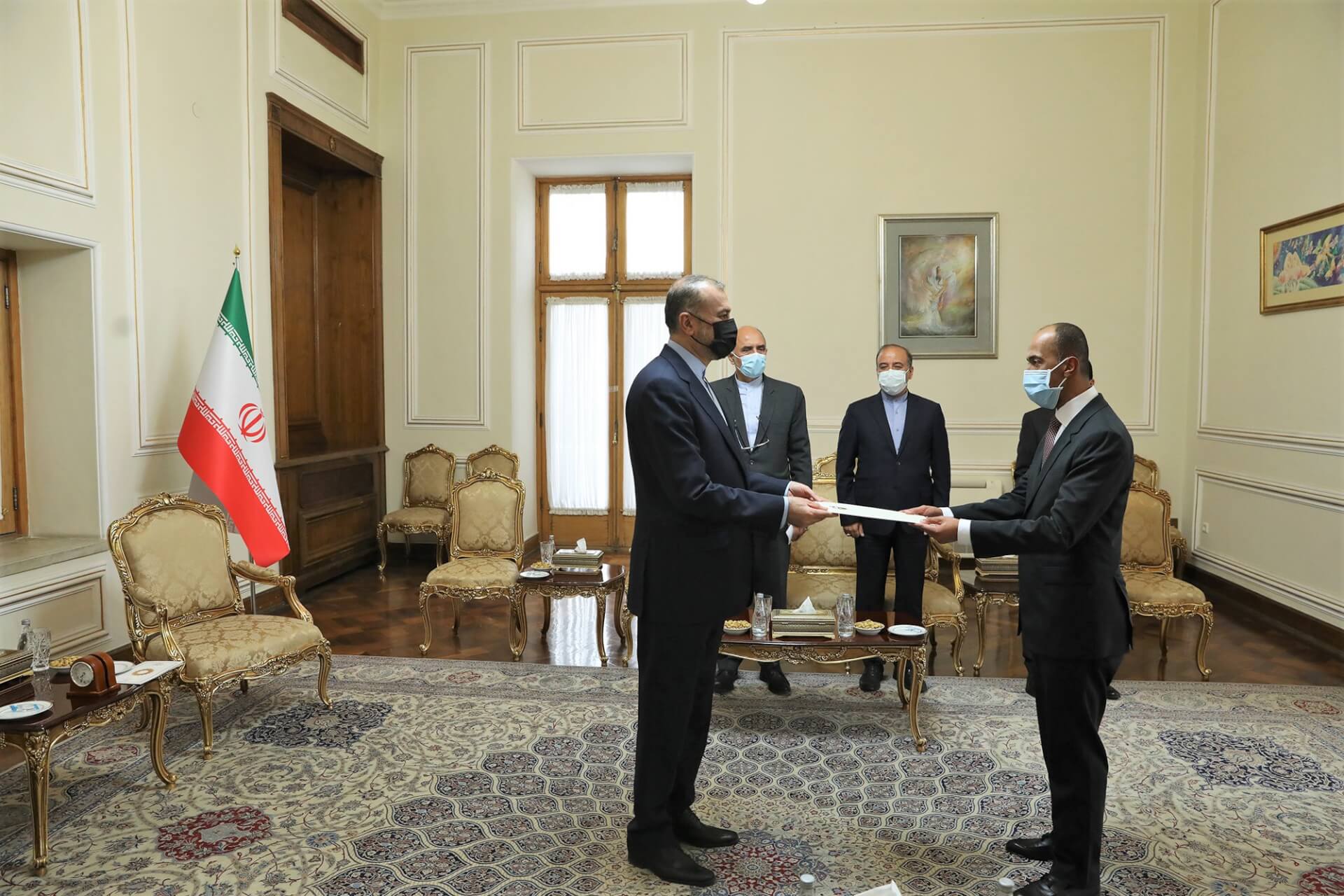Kuwait on Saturday appointed its first ambassador to Iran since recalling its envoy to Tehran in 2016 following the attack on the Saudi embassy in Tehran. The Iranian foreign ministry stated that Kuwait’s new ambassador, Badr Abdullah al-Munikh, submitted his credentials to Foreign Minister Hossein Amirabdollahian in Tehran.
The Kuwaiti foreign ministry also confirmed the appointment.
In January 2016, thousands of Iranian protesters stormed the Saudi embassy in Iran to protest Riyadh’s execution of a prominent Shia cleric. Protesters ransacked the embassy and set the building on fire with Molotov cocktails and petrol bombs. Protesters also destroyed the Saudi consulate in Mashhad.
Despite Iranian officials condemning the protests, the Arab world reacted furiously to the events and blamed Tehran. Saudi Arabia immediately severed all diplomatic ties with Iran and cut all commercial relations with Tehran. Kuwait subsequently broke off ties with Iran in solidarity with Saudi Arabia. Other Saudi allies like Egypt, Bahrain, the United Arab Emirates (UAE), Jordan, Morocco, Somalia, and Sudan also broke off ties with Iran and recalled their envoys from Tehran.
Kuwait's new ambassador to Tehran Badr Abdullah al-Munikh met Iran's Foreign Minister @Amirabdolahian in Tehran on Saturday to present a copy of his credentials.
— Iran International English (@IranIntl_En) August 13, 2022
Kuwait didn't have any ambassador in Iran since 2016, when it downgraded its ties after Saudi embassy was stormed. pic.twitter.com/v0dsLuJ375
However, despite recalling its ambassador, Kuwait did not completely sever ties with Iran. In fact, Iran has maintained an ambassador to Kuwait. In July, the Iranian ambassador to Kuwait, Mohammad Irani, called on the Gulf country to send its envoy back to Tehran. He stressed that “the presence of a Kuwaiti ambassador in Iran is an excellent opportunity to develop bilateral relations in all fields, quickly, to serve the interests of both countries.”
Riyadh and Tehran have also clashed in war-torn Yemen. Saudi Arabia has led an international coalition in the country that has been launching airstrikes against the Iran-backed Houthi rebels. Kuwait, along with other Arab countries, is a member of the Saudi-led coalition.
Ties with Iran deteriorated further in April when Saudi Arabia and Kuwait agreed to jointly develop the Arrash/Durra natural gas field in the Persian Gulf despite Tehran’s objections. Iran claims part of the gas field falls under its Exclusive Economic Zone (EEZ).
Despite these tensions, Gulf countries have sought to improve ties with Tehran and Kuwait’s move to appoint an ambassador came against this backdrop. In April 2021, Saudi Crown Prince Mohammed bin Salman said he was interested in improving relations with Iran. Since then, both sides have held five rounds of talks mediated by Iraq and plan to hold additional discussions in the coming months.
The UAE is also considering reinstating its ambassador to Iran and said it is not part of any regional alliance against Iran. Jordan, too, recently stated that it has never considered Iran a threat and seeks dialogue with Iran to resolve issues.

